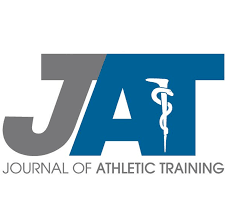Context
Comprehensive assessments are recommended to evaluate sport-related concussion (SRC). The degree to which the King-Devick (KD) test adds novel information to an SRC evaluation is unknown.
Objective
To describe relationships at baseline among the KD and other SRC assessments and explore whether the KD provides unique information to a multimodal baseline concussion assessment.
Design
Cross-sectional study.Setting
Five National Collegiate Athletic Association institutions participating in the Concussion Assessment, Research and Education (CARE) Consortium.
Patients or Other Participants
National Collegiate Athletic Association student-athletes (N = 2258, age = 20 ± 1.5 years, 53.0% male, 68.9% white) in 11 men's and 13 women's sports.
Main Outcome Measure(s)
Participants completed baseline assessments on the KD and (1) the Symptom Inventory of the Sport Concussion Assessment Tool–3rd edition, (2) the Brief Symptom Inventory-18, (3) the Balance Error Scoring System, (4) the Standardized Assessment of Concussion (SAC), (5) the Immediate Post-Concussion Assessment and Cognitive Testing (ImPACT) test battery, and (6) the Vestibular/Ocular Motor Screening tool during their first year in CARE. Correlation coefficients between the KD and the 6 other concussion assessments in isolation were determined. Assessments with ρ magnitude >0.1 were included in a multivariate linear regression analysis to evaluate their relative association with the KD.
Results
Scores for SAC concentration, ImPACT visual motor speed, and ImPACT reaction time were correlated with the KD (ρ = −0.216, −0.276, and 0.164, respectively) and were thus included in the regression model, which explained 16.8% of the variance in baseline KD time (P < .001, Cohen f2 = 0.20). Better SAC concentration score (β = −.174, P < .001), ImPACT visual motor speed (β = −.205, P < .001), and ImPACT reaction time (β = .056, P = .020) were associated with faster baseline KD performance, but the effect sizes were small.
Conclusions
Better performance on cognitive measures involving concentration, visual motor speed, and reaction time was weakly associated with better baseline KD performance. Symptoms, psychological distress, balance, and vestibular-oculomotor provocation were unrelated to KD performance at baseline. The findings indicate limited overlap at baseline among the CARE SRC assessments and the KD.
Summary Points
- The K-D test provides unique information to a multimodal baseline concussion assessment, particularly when comparing K-D test results to symptoms, balance, and vestibular-oculomotor provocation assessments.

